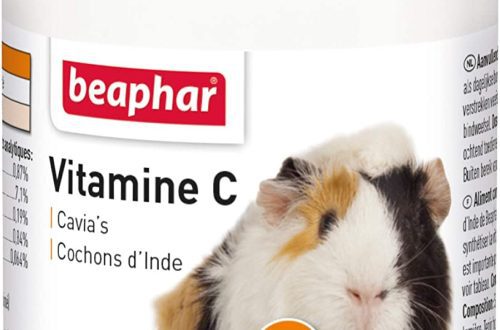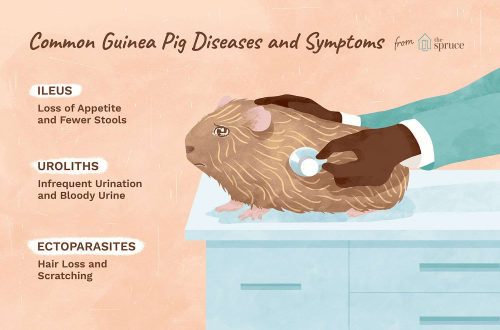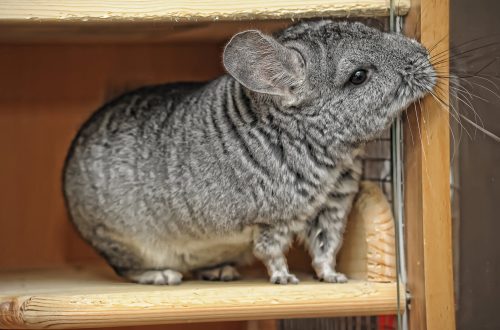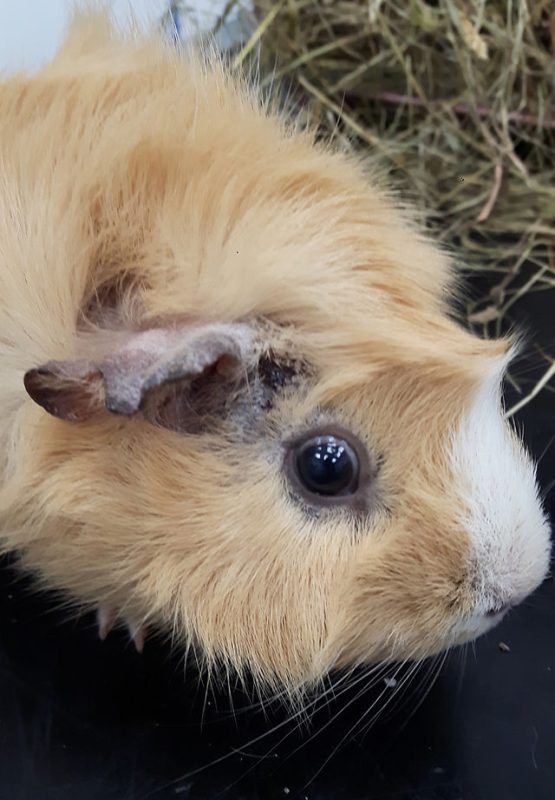
Guinea pig itches to sores on the skin, what should I do?
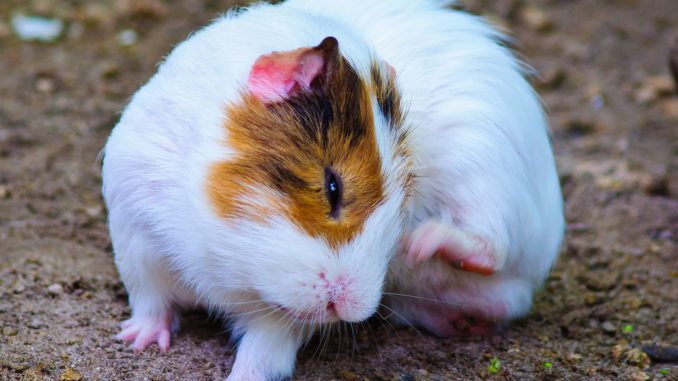
Guinea pigs are very active and cheerful rodents, characterized by a very good-natured character and excellent health. Often healthy animals jump merrily, performing funny tricks in the air. Such acrobatic movements characterize the comfortable state of the pet. But if the guinea pig itches and bounces, then this should alert. When hair falls out, scratches, wounds and alopecia appear on the body – the animal is sick. It is recommended that you urgently show your furry pet to a veterinarian. The doctor will find out the reason for this behavior of the animal and prescribe the appropriate treatment.
Why is my pet itchy
A healthy rodent should have a soft thick coat, clear dry eyes, a cheerful mood and a good appetite. If a guinea pig scratches, the most common reasons for this behavior may be:
- ectoparasites;
- stress;
- allergy;
- lichen;
- bad habits.
Differential diagnosis of these diseases should be carried out in a veterinary clinic. A competent rodentologist will prescribe a medicine for each pathology. Treatment of an animal at home is dangerous by intoxication of a guinea pig or aggravation of the animal’s condition.
Ectoparasites
The main symptom of guinea pig infestation with parasitic insects is intense itching. Because of him, a funny animal often bounces and constantly itches. He bites himself, and non-healing wounds, scratches, ulcers appear on the skin. What to do if a guinea pig has scratched its back a lot and is rapidly losing weight? What to do when she constantly combs her body and gnaws her fur? Such behavior of a small animal requires immediate contact with a veterinary clinic to detect the type of pathogen and promptly prescribe appropriate treatment. Fluffy pets are often found.
Subcutaneous ticks
Guinea pigs are affected by various types of subcutaneous mites, but trixcarosis is the most severe – scabies of guinea pigs, which causes great anxiety to a pet and can cause death of a beloved animal. The causative agent of pathology is a microscopic subcutaneous tick.
The disease is accompanied by:
- the formation of strong scratching, alopecia and ulcers in the spine and limbs;
- refusal of water and feed;
- lethargy and oppression;
- loss of coordination;
- abortions.
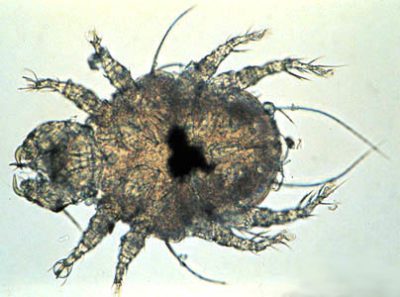
In such a situation, it is urgent to contact a specialist. The diagnosis is confirmed when the pathogen is found in a skin scraping; a course of injections of Otodectin or Ivermectin is prescribed for treatment.
Withers and lice
They parasitize on the skin of an animal: lice feed on blood, and lice feed on particles of the epidermis and skin of a fluffy pet.
Lice from guinea pigs are transmitted to humans, causing head lice.
Insect parasitism manifests itself:
- lethargy;
- refusal of food;
- pet anxiety;
- the formation of scratches and wounds on the body.
Adults can be found in the animal’s fur, they look like rapidly moving light dots. The eggs of parasitic insects resemble light-colored dandruff that cannot be removed from the coat of a guinea pig.
For diagnosis, a microscopic examination of the coat is used in a veterinary clinic; treatment is based on the use of Otodectin and Ivermectin.
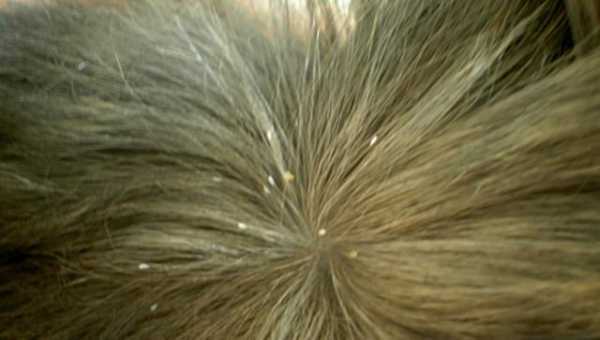
Video: how to deal with guinea pigs with lice
Fleas
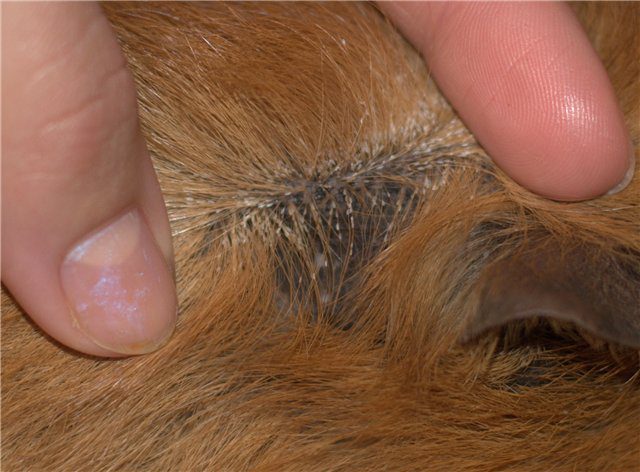
Most often they are transmitted to guinea pigs from domestic dogs and cats. Parasitic insects feed on rodent blood.
Ectoparasite bites cause:
- severe itching;
- anxiety and anemia in a fluffy pet;
- the animal often scratches the skin;
- chews on himself and refuses to eat.
You can find fleas or their waste products on a fine comb when combing out the fur of a pet. For the treatment of an animal, veterinarians prescribe medications based on permethrin.
Stress
Guinea pigs are very impressionable pets.
A stressful situation can cause hair loss, skin scratching and fur biting. and sometimes a stroke and even the death of a small animal.
Stress factors:
- change of scenery or owner;
- sudden movements and loud sounds;
- annoying attention of pets and children;
- careless removal of a small animal from a cage;
- injury or the introduction of a new relative.
Frightened pet:
- balding rapidly;
- scratches the skin and gnaws the fur;
- refuses food, water and favorite treats;
- does not respond to external stimuli.
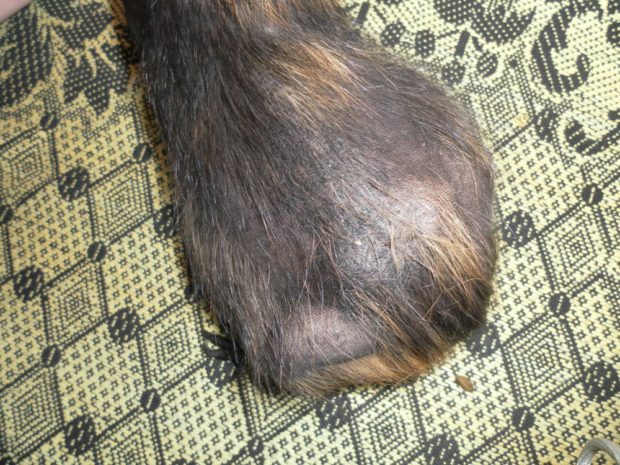
What to do if your beloved pet itches due to stress?
The best treatment is to create a quiet calm atmosphere. You can place your pet in a darkened room and offer your favorite treats. The little beast will calm down and stop itching without the use of drugs.
Allergy
Violation of the conditions of feeding and maintenance can provoke an allergic reaction. It is manifested by the rapid baldness of a fluffy animal, combing and biting out wool. The animal’s skin and eyes become inflamed, it flows from the nose. The rodent sneezes, shortness of breath is possible.
Allergies in furry pets can be caused by:
- use of a new filler;
- bathing shampoo;
- low-quality feed, hay or water;
- treating a pet with prohibited foods;
- houseplants or poisonous herbs.
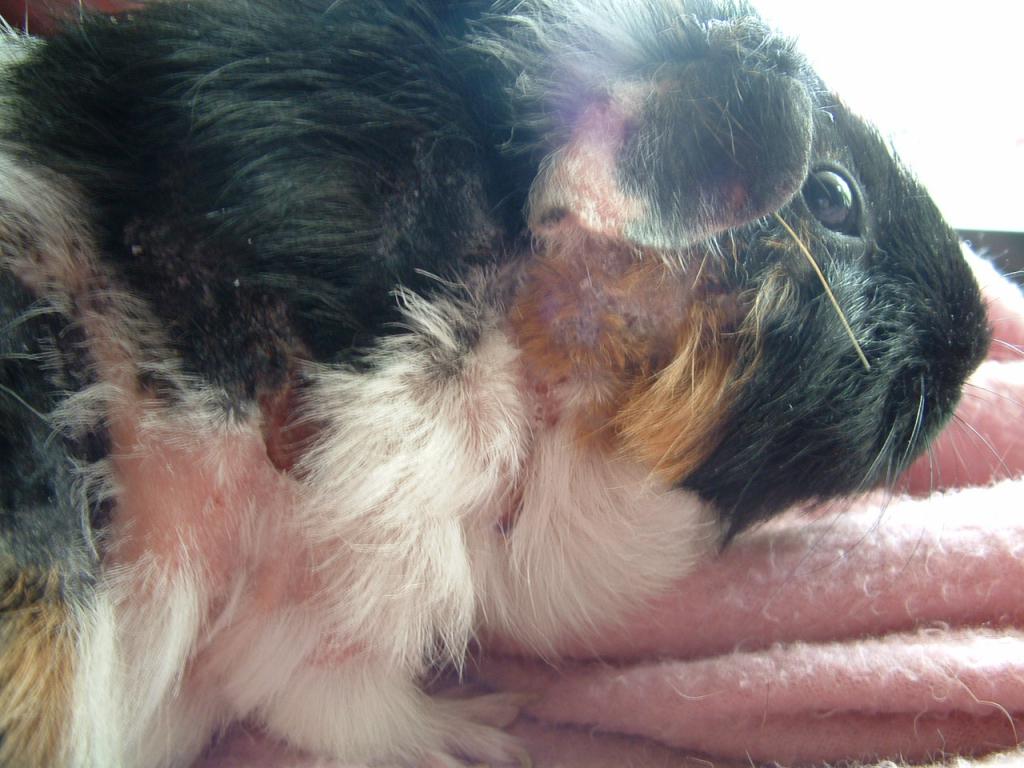
What to do if a funny animal scratches itself intensely from allergic dermatitis?
Treatment of allergies in small pets is based on the exclusion of the irritant and the use of antihistamines.
Lichen
The guinea pig scratches itself constantly and goes bald when the skin is affected. Pathogenic fungi cause trichophytosis and microsporia, referred to by the same name “lichen”.
Sick animals pose a danger to humans and their relatives.
With pathology:
- on the skin of the animal around the eyes, nose and limbs, characteristic delineated rounded inflamed areas of alopecia are formed;
- the rodent often scratches itself, worries and gnaws out the fur.
In the absence of timely treatment:
- there is an enlargement of the affected zones and their merging;
- the animal is rapidly going bald;
- the skin is covered with ulcers and abscesses;
- weak individuals and young animals may die from the addition of a secondary infection.
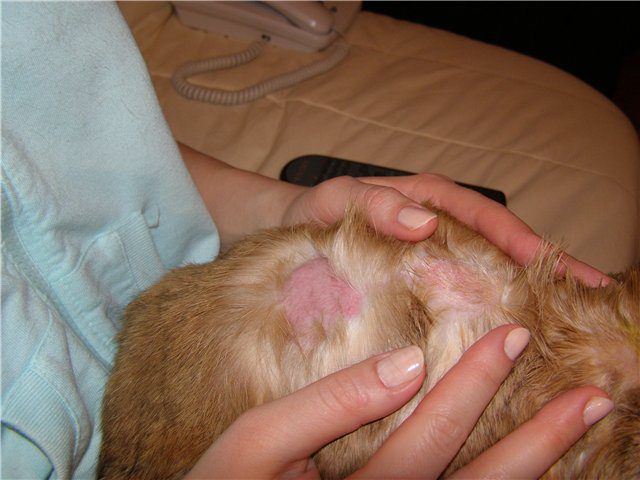
What to do if a small pet has lichen spots on its body on its head and limbs?
Diagnosis of the disease is carried out in a veterinary clinic, to identify the pathogen, irradiation of the affected areas with a Wood’s lamp and microscopic examination of skin scrapings are used. For the treatment of a sick animal, antifungal drugs are prescribed, the duration of therapeutic measures and the outcome of the disease depend on the neglect of the pathological process.
Addictions
Guinea pigs are social animals. In the absence of company or lack of attention of a beloved owner, they are able to bite out of boredom. When kept in an excessively small cage, animals may begin to itch. An addiction can be eradicated by acquiring a friend for your pet, increasing the size of the home with the installation of all kinds of accessories to ensure the leisure of a small animal and increasing the time for walking and active communication with a small friend.
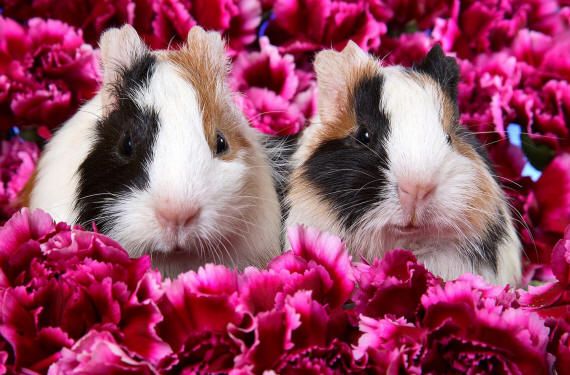
Do not waste time and self-medicate if your beloved pet combs the skin, jumps up and gnaws the fur. When scratches and wounds appear on the body of a domestic animal, it is too late to look for reasons. Restless guinea pig behavior at home can be a symptom of guinea pig disease. Some of them are transmitted to humans. In order to protect your family and save your beloved animal, it is recommended to urgently contact a veterinary clinic, where the animal will be examined and appropriate treatment will be prescribed.
Why does a guinea pig itch
3.1 (61.82%) 11 votes



